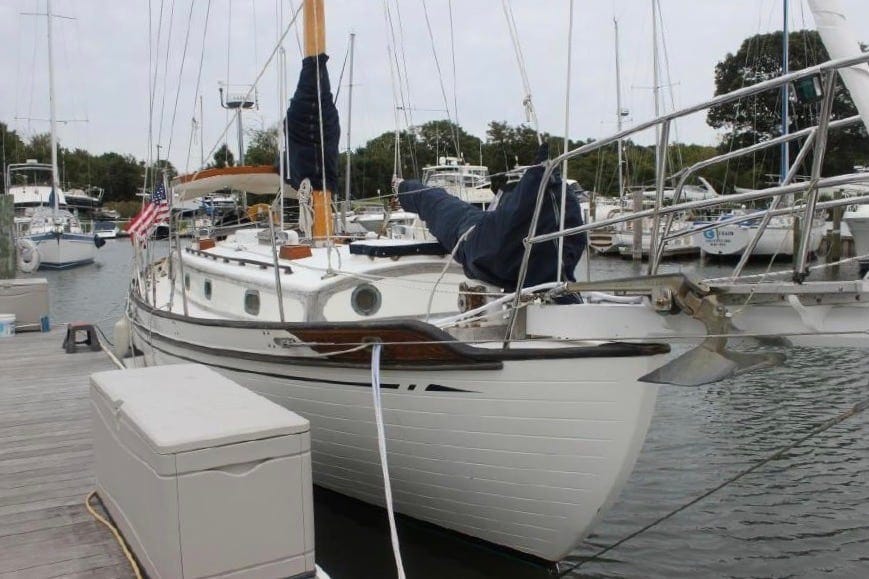If Only We Were Books - What a Story We Could Tell
Until recently I've never really thought about the books I left behind for others to read.
I’ve been writing on Substack since June and have very much enjoyed seeing reader subscriptions increase. It’s fun to know you’re out there! Thank you!
“A book lying idle on a shelf is wasted ammunition. Like money, books must be kept in constant circulation...A book is not only a friend, it makes friends for you. When you have possessed a book with mind and spirit, you are enriched. But when you pass it on you are enriched threefold.” Henry Miller, The Books in My Life
Do you collect books?
Are your books dusty?
I starting collecting books when I was very young. I remember at one point in elementary level school, a teacher who would put a red construction paper apple on the large construction paper formed apple tree on the bulletin for every book a student read. Since I had the most apples at the end of the school year, she rewarded me with a beautiful storybook about a fluffy, big, gray cat.
At some point in my life I gave that prize away, and I now have a fluffy, big, gray cat.
He’s sitting right here with me as I write.
In the 1980’s, I was fortunate to get to do some sailing on the East Coast, cruising out of Buzzards Bay, Massachusetts. Stopping points included Martha’s Vineyard, Nantucket, Provincetown and an attempt to sail to Bermuda that halted because my friends dad was chartering the vessel and we had to bring it back in.
All along the way, in quaint East Coast bookstores, I picked up and read paperback books. Also along the way, I’d leave those books, in restaurants, bars, indoor public spaces for others to enjoy. Always with a note on a cocktail napkin or a paper bookmark with the word: “Enjoy!”.
Currently, I am in the middle of rereading An Embarrassment of Mangoes: A Caribbean Interlude by Ann Vanderhoof. It was originally recommended a long time ago by friends who liked to travel the way my student and I did.
My original copy was a paperback I left in Saint Maarten.
I have often left books behind for the next person to find, especially when we travel to the Caribbean and Central America.
It’s fun to think about how someone might enjoy the book like I did.
Until recently, I've never really thought about the books I left behind for others to read.
When we first moved to our farm house I had three rooms to work with, no closets or wall space really. I also had some twenty five boxes of books to deal with.
I like books.
Books don't mind being out in the garden with you, in the barn, in the raspberry field. They sit patiently on the table or shelf waiting for you, not ever demanding to be charged, picked up and answered, fixed. The story a book can tell, a recipe, step by step instructions can all be revisited, at any time. No bookmark or history search needed.
While we have increased the number of rooms in our farm house, I still have the majority of those twenty five boxes to deal with.
It seems I haven’t been very good about leaving books behind lately.

There used to be an organization, which started as a simple project in 2000 with a shipment of primary school materials to Grenada called Boaters for Books, Inc. It was a non-profit organization based in Punta Gorda, Florida focused on literacy in the Caribbean. People who lived aboard sailing vessels and motor yachts would donate their “leave behind books”, and new books, to the organization and they would make arrangements to ship the books to Caribbean countries.
My student and I participated in donating books to this organization after an extensive sailing trip in the Caribbean traveling to the Leeward, Windward Islands, St.Vincent and the Grenadines and Grenada early in 2004.
It was large scale “leave a book behind” for us.
We gathered new and used, elementary age, picture and story books and filled four of those small U-Haul boxes. We sent the boxes with friends who were headed to a destination near Punta Gorda, Florida to Boaters for Books, Inc.
My student was thrilled to be able to do this. We did something big (for us) like this once a year.
In its beginning, Boaters for Books, Inc. shipped many cartons packed with hundreds of reading and library books to schools in Carriacou, Union Island (The Grenadines), Dominica, Grenada, and Nevis.
In it’s heyday, they had annual or bi-annual shipments and expanded to many more English-speaking eastern Caribbean countries including Anguilla, Bequia, Montserrat, St. Vincent, and Trinidad and Tobago.
Shipping and storage were free and provided by a shipping company and storage company also based in Punta Gorda, Florida.
Boaters for Books merged with the Hands Across the Sea in 2011.
Prior to the merge they had distributed over 150,000 books.
Friends, who are going to Grenada at the end of January, are intentionally taking books to donate to the Grenada Library in St. Georges. This particular library, as was most of the island, destroyed by Hurricane Ivan, a category 5, in September 2004 and then Hurricane Emily further pummeled the island a year later in July of 2005. They still remember Boaters for Books, Inc. and alway take books to donate to the library when they go.
There are several organizations that do this sort of thing now. The Hands Across the Sea organization seems mainly interested in collecting money donations, or purchased new books, of their specification. But there are other organizations who will take your used books. I did a search and they are not hard to find. What I observed is, each organization has a different priority and regional focus, so if you’re thinking about donating books for literacy, they’re out there.
But back to thinking about the books one leaves behind, there was an entrepreneur a few years back who thought about this too. He started a web community called BookCrossing(BXing) where you assign a number to a book and give it away. You can track your book to see where in the world it has gone to.
Ron Hornbaker conceived the idea for what is now known as BookCrossing.com along with co-founders Bruce and Heather Pedersen. They wanted to make the whole world a library and have been pretty successful.
From the BookCrossing.com FAQ:
I'm looking at your site here, and I can't believe what I'm reading. Do you actually want me to give away my books?
Ummm, yes. Trust us on this one. Registering your books with BookCrossing.com, then giving them to a friend, a charity, or otherwise releasing them "into the wild" and following their progress and travels, is infinitely more fulfilling than the small satisfaction you'll get by looking at your books in your bookcase every day.
As Austin Powers would say, "It's karma, baybee!"
When you give the book away, it's "released".
In releasing a book, you make an entry (journal the book) at BookCrossing.com indicating that it's been released.
When someone "captures" or finds a book with a BookCrossing label and number, they add an entry at BookCrossing.
The bookcrosser who released the book can then track where the book is and who is reading it. Everyone in the chain who held/read the book will also be able to see the book's journey at the website.
BookCrossing has been criticized in the past as devaluing the books shared and could lead to a lessening of sales. However I feel this practice introduces readers to authors and genres they would have never considered.
There are currently 1,955,604 BookCrossers and 13,993,276 books travelling throughout 132 countries.
Seems like a lot of fun and an interesting journey - if you're a book.
Even more fun if you release a book or two!
An Embarrassment of Mangoes: A Caribbean Interlude by Ann Vanderhoof.




What a wonderful idea. I recently sent a couple of boxes of books to sellbackyourbook.com. I was afraid that if I donated them somewhere they might be tossed in a dumpster and this particular site takes only books they think they can sell. They generally offer only a pittance, but they cover shipping costs. I am going to check out Book Crossing. Thanks.
When you mention sailing and books in the one article I am in immediately.
I used to sail competitively on Sydney Harbour when I was in high school.
I have never been able to read fast and at first it was laborious, but I improved over time and love learning new things.
I follow the M'Cheyne's calendar for daily bible readings and have learnt so much over the last 40 years. If those who think it is not God's perfect word did this they would change their minds.
I remember when I used to read Huck Finn to my wife when we first were married and it put us both in stitches. I also have a large collection of books. Some are from my studying days and others from my interests in theology, science, history and music. All my cupboards are full of them and I dare not lend them out as they never come back and some are not in print any more. I even sell some authors who have to be imported and cannot be bought locally as these books are very special.
I wish I had more time to read, but on a farm your work is never done.
As libraries close or de-clutter you will find a source of free books and also schools tend to throw out the books the new teachers don't like. You would not believe the wastage at these places.